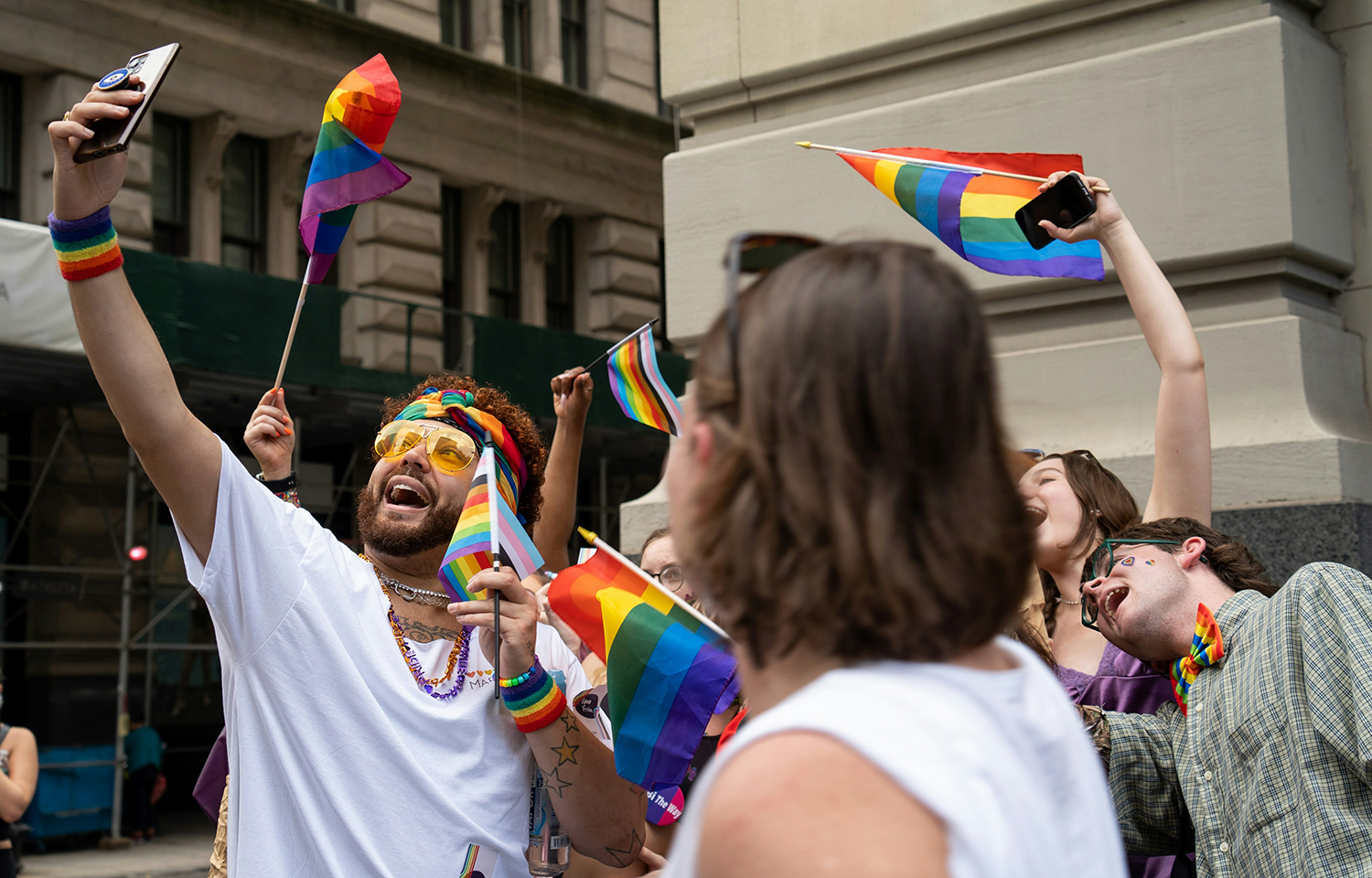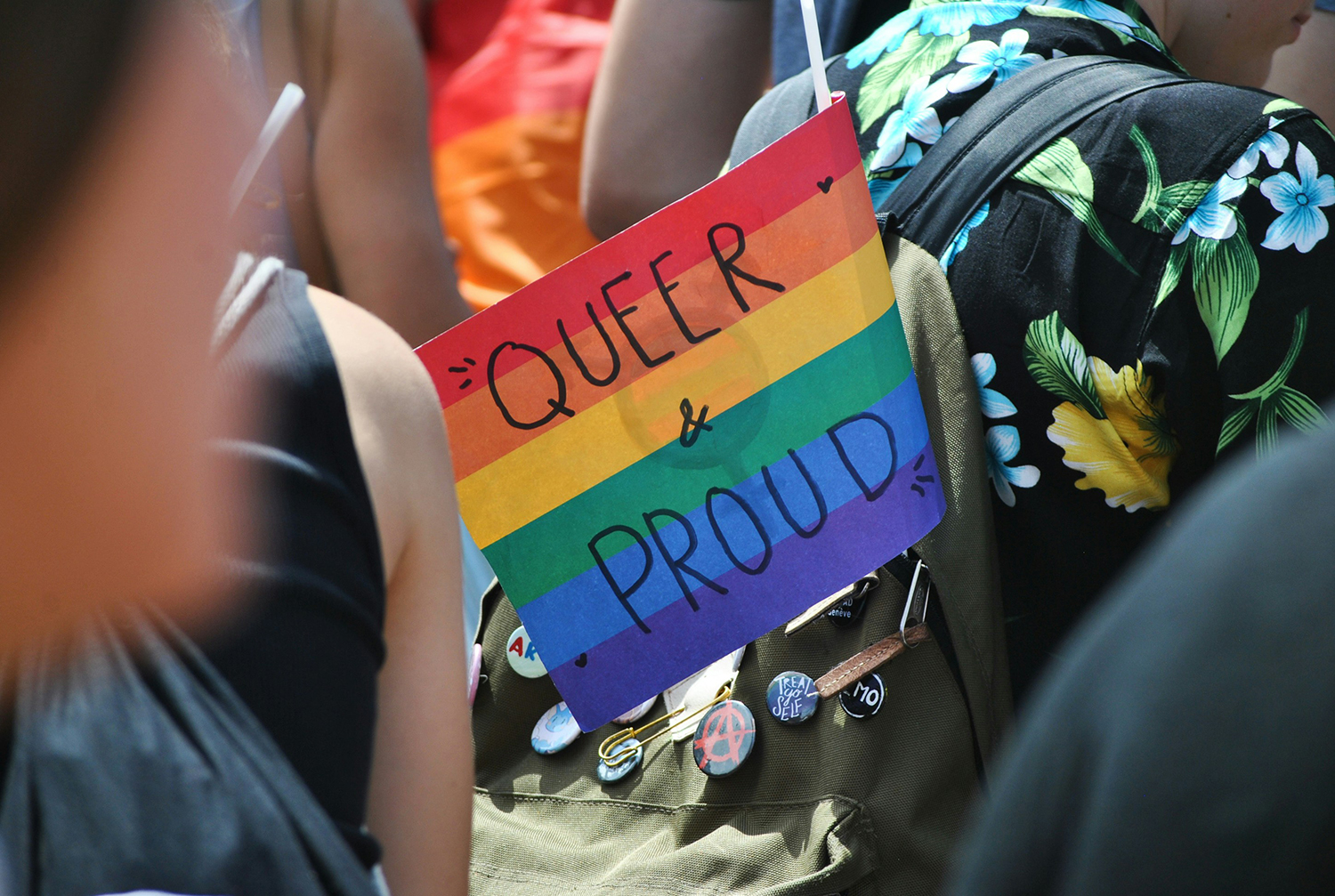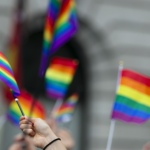It is June, which in addition to being the start of the summer season, is also Pride month. Celebrated globally, Pride began following the Stonewall riots in 1969, and has grown steadily ever since.
In the 1980s, the AIDS crisis meant Pride was hugely relevant to drive both awareness and to dispel discrimination. From the 1990s onwards, Pride events became larger and more commercialised, and now, around 30,000 people attend London Pride, and more than two million attend Pride in New York.

Last year represented a backwards step for some companies which had previously been supportive of their workers and customers, however. In the U.S. in particular, Target bowed to pressure from right-wing groups, and halved the number of stores in which it had its Pride collection available.
The Human Rights Campaign said that “Target’s decision is disappointing and alienates LGBTQ+ individuals and allies at the risk of not only their bottom line but also their values”.
Its president Kelley Robinson also said in a statement that selling Pride merchandise “means something,” and as 30% of Gen Z are part of the LGBTQIA+ community “companies need to understand that community members and allies want businesses that express full-hearted support for the community”.
Bud Light also drew boycotts after a social media campaign with actress and TikTok personality Dylan Mulvaney, a transgender woman, drew the ire of American conservatives. The LA Times and NBC News both described the backlash as anti-trans, and it caused sales to fall by up to 26%.
LGBTQIA+ and work
When it comes to how this affects LGBTQIA+ individuals in their wider lives, new data from Randstad has some sober figures to offer. Its most recent Workmonitor Pulse Survey found that just under half of LGBTQIA+ employees feel comfortable discussing their sexuality or gender identity at work, with 28% avoiding it altogether.
More worrying is data from a recent survey by EduBirdie of 2,000 people who identify as part of the LGBTQIA+ community. Asking about their experiences of discrimination at work, the data shows that 40% had their orientation or identity disclosed without consent.
The study also found that 63% have faced discrimination in their career, with 15% of reported discrimination going unaddressed with HR departments and by managers.
Deloitte’s Global 2023 LGBT+ Inclusion @ Work report had similar findings. While 60% of its respondents believe it is important to be able to be out at work about their sexual orientation, only 43% feel comfortable being out with all of their colleagues.
Isolation and loneliness are workplace issues for LGBTQIA+ workers too. Randstad’s report found that while 41% said they’ve faced less discrimination than they did five years ago, almost a third said it had worsened over the past five years, with another third also feeling more isolated at work than they did five years ago.
That’s worrying for both LGBTQIA+ employees and businesses alike, which will lose talent if they don’t develop inclusive policies. One piece of positive news for those in the UK, is the fact that 62% of UK workers believe that their employer has taken meaningful action to create an inclusive workplace, compared to 51% globally.
 Showing support
Showing support
Many companies are publicly supportive of their LGBTQIA+ workers, including Google, (which has an internal LGBTQIA+ network called “Gayglers”), as well as the tech titans of Microsoft and Apple. Unilever and JP Morgan Chase are also on record as providing inclusive benefits and support for LGBTQIA+ employees.
It may not be enough, says jobs site Indeed, which has found that 30% of queer employees have refused to apply to a job because of a perceived lack of company support for the community.
Additionally, 50% of trans workers haven’t applied for a job for the same reason, with around a third of queer employees saying they’re reluctant to apply for work in U.S. states where legal protections for LGBTQIA+ people are lacking.
There are both moral and economic reasons for why those in the LGBTQIA+ community should be welcomed in the workplace. It is the right thing to do, and from a business perspective, diversity is known to improve outcomes. It increases opportunities for learning, adds perspectives and nuance, and boosts innovation and creativity.
Gen Z adults identify as LGBTQIA+ at rates greater than their generational predecessors, and businesses need to keep up. Indeed also found that more than half of employers believe they’re doing “a good job” of being vocal in their support, but actually, 29% of workers begged to differ. They said that their employers can do “a better job”.
Find out more
If you enjoyed what you’ve read above, and would like to get original work-related content on your own website, plus maximise your revenue, contact us now.










